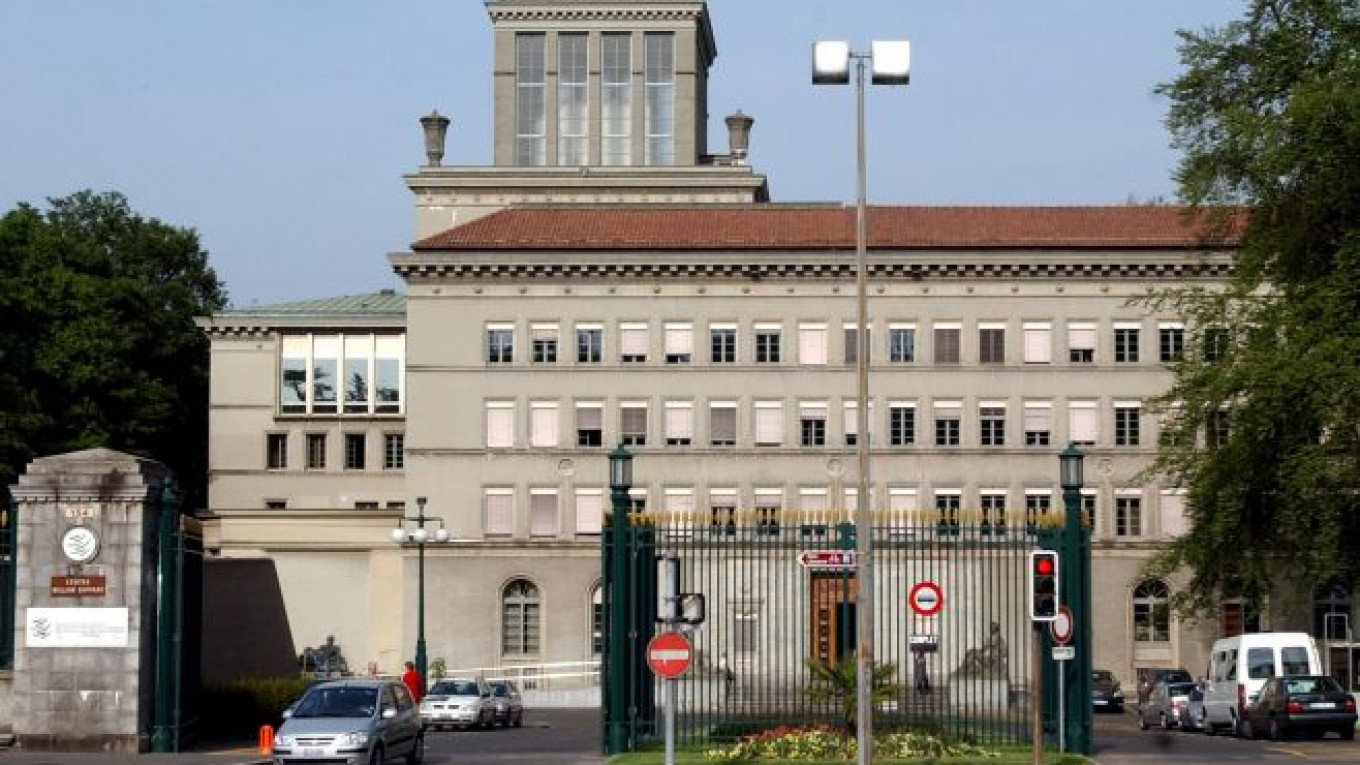If the European Union bites the bullet and challenges Russia's food import bans at the WTO, the bitter battle of sanctions and trade embargoes could claim yet another, unexpected victim — the World Trade Organization itself.
After taking a nasty hit from Russia's bans on certain food imports earlier this month, Poland last week filed an official request with the European Commission to contest the bans at the WTO. The commission has said it is considering the move.
The real issue at stake, however, is not whether the 28-state bloc throws its weight behind Poland's complaint, but what defense Russia takes if it does, said Hosuk Lee-Makiyama, trade lawyer and director of the European Centre for International Political Economy.
Everything rests on a provision known as the "national security exception," which allows any WTO member to essentially throw away the rule book if it claims its national security interests are at stake — which is exactly what Russia did when it announced its import bans on Aug. 7.
What makes the article particularly potent is that the WTO itself cannot define what does or does not constitute a security threat.
"It's not an objective criteria," Lee-Makiyama said. "Whether these food bans are a national security interest, for instance, is actually entirely determined by Russia itself."
You might expect that such a generous caveat would be frequently employed to bat away challenges at the WTO, but in reality no member has ever raised the defense, and with good reason.
"They know this is like a hand grenade under the building. If one party claims it [the national security defense], everyone will start to claim it," Lee-Makiyama said.
Legitimizing that "get out of jail free" card could open the floodgates to a wave of similar defenses, draining the WTO's trade rules of their authority. Understanding that the organization's power hinges on avoiding this outcome, experienced WTO members have been tiptoeing around the article for years.
But Europe has little reason to believe that Russia will avoid the clause. Having joined only in 2012, Russia is new to the WTO, and has demonstrated a willingness to bend the rules over the past two years, such as in its efforts to protect its domestic car industry through discriminatory tariffs on foreign producers.
The Russian government is also known for viewing foreign trade through the prism of national security — as seen, for example, in its dogged resistance to trade association agreements between the EU and former Soviet republics and its pursuit of Eurasian trade integration that many analysts see as a drain on Russia's economy.
What is more, Russia has no other plausible legal defense at its disposal. If the EU files a case in the WTO, Russia could either abolish its food bans or plead the national security exception, Lee-Makiyama said.
President Vladimir Putin's authorization of the food bans drove home the point — Putin's decree said the measures were aimed at "ensuring the safety of Russia."
Winter Is Coming
The WTO might dodge the bullet, however. Legal cases can take years, and the escalating cost of the tit-for-tat sanctions gives both Russia and the EU good reason to resolve the dispute as quickly as possible.
Russia's economy is foundering. Gross domestic product dropped 0.2 percent year-on-year in July, as weak investment and sluggish consumption took their toll, according to data from Russia's Economic Development Ministry.
Investor and consumer confidence have been wrecked by the crisis in Ukraine, and sanctions cutting off state-owned banks' access to debt in Western capital markets will only make it harder to spur economic growth.
The European Union, meanwhile, is teetering on the brink of recession, and Russia's food import bans could cost the union 6.7 billion euros ($8.9 billion) and 130,000 lost jobs, according to research by Dutch bank ING cited by news agency Prime.
Economists on both side of the border argue the costs are simply too high to pay for long.
"Many are thinking that maybe now it's really necessary to agree to the mutual removal of sanctions, both Europeans and Russians are thinking this," said Alexei Portansky, a professor in the Trade Policy Department of the Higher School of Economics.
Lee-Makiyama agreed. "We are moving toward winter. On both sides, we are looking at six to eight months, tops, in terms of how long they can uphold their own sanctions," he said.
Contact the author at [email protected]
A Message from The Moscow Times:
Dear readers,
We are facing unprecedented challenges. Russia's Prosecutor General's Office has designated The Moscow Times as an "undesirable" organization, criminalizing our work and putting our staff at risk of prosecution. This follows our earlier unjust labeling as a "foreign agent."
These actions are direct attempts to silence independent journalism in Russia. The authorities claim our work "discredits the decisions of the Russian leadership." We see things differently: we strive to provide accurate, unbiased reporting on Russia.
We, the journalists of The Moscow Times, refuse to be silenced. But to continue our work, we need your help.
Your support, no matter how small, makes a world of difference. If you can, please support us monthly starting from just $2. It's quick to set up, and every contribution makes a significant impact.
By supporting The Moscow Times, you're defending open, independent journalism in the face of repression. Thank you for standing with us.
Remind me later.






